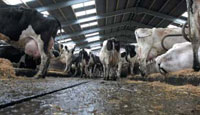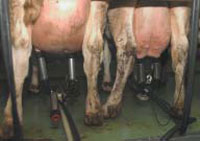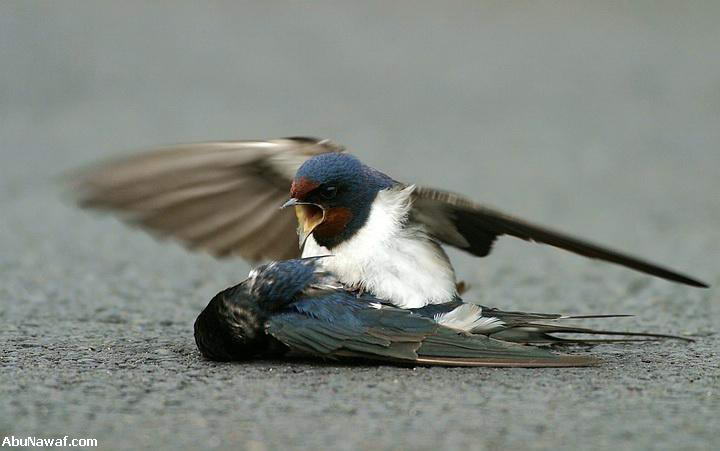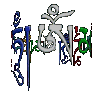

 Go Vegetarian To download the file, right click on the link and select "Save Target As".
Go Vegetarian To download the file, right click on the link and select "Save Target As". 
|
Link File Size |
Video Clips and e-Freebies | |
| Click
here 15.8 MB |
Video Clip - Story behind the making of Furs | |
| Click
here 7.52 MB |
Video Clip - Pigs Slaughter in Farms | |
| Click
here 7.10 MB |
Video Clip - Turkeys Slaughter in Farms | |
| Click
here 6.38 MB |
Video Clip - Chickens Slaughter in Farms | |
| Click
here 8.82 MB |
Video Clip - Cattles Slaughter in Farms | |
| Click
here 1.35 MB |
Free Vegetarian Starter Kit | |
|
If
on the one hand, we chant the [Mani] mantra and on the other hand,
we eat the meat of another sentient being,
then our words and actions do not tally with one another.
-
Drubwang Rinpoche
One of the greatest obstacles to the
birth of Bodhicitta
in our minds is our craving for meat. -
Shabkar
In his final years, the late great His Eminence Drubwang Konchok Norbu
Rinpoche (1921-2007) repeatedly touched upon two teachings in his
talks during the popular Mani retreats that he held. The
first is the urgency of upholding the Mani mantra (Om Mani Padme Hung),
and the second is the urgency of abstaining from eating meat.
At first glance, these seem to be unrelated subjects. However, they are closely
linked indeed. The Mani mantra, if chanted well, invokes one's compassion. The
more it is invoked, the more perfectly all-encompassing it becomes. It would
include compassion for all animals too.
Compassion is important because it is seen as the
root of all virtues in Buddhism. While compassion has to balance with
wisdom, it precedes wisdom in priority. Even the seeking of wisdom for self-liberation
is possible only when one has compassion for oneself. Without the perfect compassion
of the Buddhas, who aspire to guide all beings to liberation, there would be
no widely taught Dharma at all. Any other virtue, when lacking in compassion,
renders it a fault too. Thus is the quality of compassion central and crucial.
Was helping out at the wake of Rinpoche yesterday. There was little grief on
my part - because there is faith that he is a well-accomplisd spiritual practitioner.
His passing was peaceful too. Seeing what seemed to be thousands paying their
final respects to him, there is rejoice at his great merits instead. With overwhelming
compassion, surely, he is likely to re-manifest in Samsara to continue helping
all beings, in one way or another. For great practitioners
of the Bodhisattva path, when the body expires, there is the need to change a
new one. It is as simple as that.
Despite being born in
Today, with the wide availability of more vegetarian options, Tibetan
monasteries around the world are increasingly going vegetarian. Even His Holiness the 14th Dalai Lama, the spiritual leader of the international
Tibetan Buddhist community, who once wrote a long life prayer for
Rinpoche, strongly advocates the vegetarian cause. This is simply the way
it has to be - for if even the leaders of Buddhism do not encourage compassion for
voiceless animals, the heart or core value that is compassion would be lost.
"Heart-less" then would Buddhist practice be - with the hypocrisy of wishing
all beings to be well and happy while wishing to eat some of these beings. Vegetarianism
is no must for all Buddhists, but surely, it ought to be mindfully
considered.
At the wake, I saw some devotees shedding tears of grief. If we truly believe
Rinpoche to be a liberated being, even before he passed away, then the truth
is that there is no need to grieve for him. Perhaps,
we should grieve for ourselves instead - to the extent that we have yet to perfectly
practise what he taught - such as the two urgent teachings, as listed
in the opening paragraph. We need to get over this grief though, to simply live
the teachings. I see what seemed to be hundreds of khatas and flowers offered
at his shrine. The offering of khatas symbolises the giving of goodwill, auspiciousness
and compassion. The offering of flowers is to remind us of the reality
of impermanence.
Surely, Rinpoche had already amassed great goodwill and auspiciousness with
his compassion in action. Surely, he is already at peace with the impermanance
of his body. All the khatas and flowers in the world would not be as great a!
n offeri ng, as the practising of what he taught. The
way to truly honour his passing is to not let his teachings pass us by - to
truly take his advice to heart, to truly practise what he preached, to truly
spread the teachings that he taught. Surely, Rinpoche would rather one
to uphold the Mani mantra, and to go vegetarian for life, than to make a one-time
offering to him. May Rinpoche swiftly return to help more beings!
Teachings
by His Eminence Drubwang Konchok Norbu Rinpoche
on 8
Dec 2003 at Than Hsiang Temple, Penang, Malaysia
during 100 Million Six-Syllable Mantra Recitation Retreat (on Meat-Eating)
1. As
Buddhists, we practiseo as to benefit oneself and others. Hence, we do the six-syllable
(Om Mani Pad Me Hung) mantra practice. However, when
we eat meat - be it chicken, pork, fish or eggs... in our daily lives,
we are creating immense negative karma.
2. If
on the one hand, we chant the mantra and on the other hand, we eat the
meat of another sentient being, then our words and actions do not tally with
one another. We are not practising as we preach. Can this be considered
as loving-kindness and compassion towards sentient beings? Is this doing good
and abstaining from evil? We take refuge in the Buddha because His teachings
could benefit all sentient beings. As Buddhists, we should understand the essence
of the ! Buddha's wisdom and teachings, which is to do good and abstain from
committing evil deeds. Abstaining from evil means that we have to keep our [Bodhisattva
3. When
we are sick, old or near death, we would go to a doctor - we would
practise and do anything possible and extend our life span. However, when
we take meat, we are killing sentient beings that are healthy. How great is
our compassion and loving-kindness if we treat sentient beings in such a manner?
We should abstain from killing because it
generates immense negative karma. Instead, we should develop loving-kindness
and compassion towards all sentient beings.
4. In countless
rebirths, all sentient beings have been our parents.
When we took rebirth in the human realm, we had human parents; when
we took rebirth in the animal realm, we had animal parents and so forth. Samsara
is such. We need to generate a sense of gratitude towards our parents in this
lifetime and those of our past lives. Hence, we should be vegetarians
and abstain from taking meat. In such a way, we would do good and give
meaning to our practice. By doing so, our practice of the six-syllable
mantra would be able to benefit ourselves and others, and also aid in the flourishing
of the Dharma.
5. There are some
people who say that their doctor has advised them against becoming vegetarians,
as they would suffer from malnutrition. [The truth is a balanced vegetarian
diet is much better than a non-vegetarian diet.] This is a sign that
the determination of these people is not strong enough. For if one has strong
determination, one would avoid doing evil deeds at all cost and under any circumstances.
6. Hence in
our daily lives, we should stop committing the negative deed of eating meat.
On this basis, the merits generated from our refuge and practice of the six-syllable
mantra would be inconceivable. We should try to change our lifestyle towards
vegetarianism. We would certainly face difficulties
in becoming fulvegetarians. However, when such obstacles arise, we should remember
how every sentient being had at one point or another been our parents. When
we remember this, then we would not take meat just as we would not eat the meat
of our parents of this lifetime.
-Translated
by Konchok Tenzin Drolma
Slightly corrected and restructured
by Shen Shian, with notes in parentheses
In
order to satisfy one human stomach, so many lives are taken away.
We must promote vegetarianism.
It is extremely important.
- His Holiness the 14th Dalai Lama
Vegetarianism As
Irrefutable Rationale to go Vegetarian: www.viva.org.
Irrefutable Rationale to go Vegan: www.viva.org.
Trying Harder to be More Vegetarian: http://moonpointer.
Buddhist "Bad Faith" to Animals?: http://moonpointer.
Must Buddhists Be Vegetarian?: www.moonpointer.
Meat Causes 18% of Global Warming:
http://groups.
Being Vegetarian in
Free Vegetarian Starter Kit:
www.vegetarianstart
About His Eminence Drubwang Konchok
Norbu Rinpoche
- Completed studies of 13 major texts in the Tibetan Traditions, e.g. The Bodhisattva
Way of Life by Shantideva.
- Exponent of the Mind Only school and the Madhyamika school philosophies.
- More than 30 years of meditation retreat experiences at times taking only
1 petal of flower and a drop of honey water per day during his retreat.
- Personally completed 12 X 100 million times of Six-Syllabled Mantra.
- An accomplished practitioner with high realization & a retreat master
of Mahamudra
- Led the completion of several 100 Million Mani recitation retreats in
"A very powerful
and accomplished practitioner"
as praised by HH 14th Dalai Lama, he was specially appointed by him to propagate
the Guanyin Practice of Om Mani Padme Hung to the whole world to benefit all
beings.
An email from from Lizzie: Awakening- Oh! What is Wrong with Milk?




Lizzie
![]()
Many people think animals don't have a brain or feelings??
Swallows:
Here his wife is injured and the condition is fatal.
She was hit by a car as she swooped low across the road.

Here he brought her food and attended to her with love and compassion.

He brought her food again but was shocked to find her dead.
He tried to move her....a rarely-seen effort for swallows!

Aware that his sweetheart is dead and will never come back to him again,
he cries with adoring love.

He stood beside her, saddened of her death.

Finally aware that she would never return to him, he
stood beside her body with sadness and sorrow.

It is said that the
photographer sold these pictures for a nominal fee to the
most famous newspaper in France . All copies of that
newspaper were sold out on the day these pictures were published.
And many people think animals don't have a brain or feelings??

OM MANI PADME HUNG.